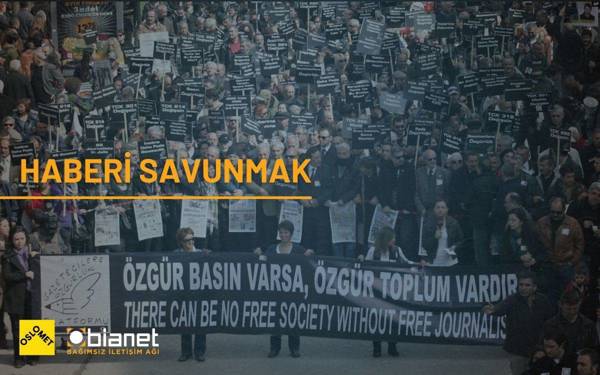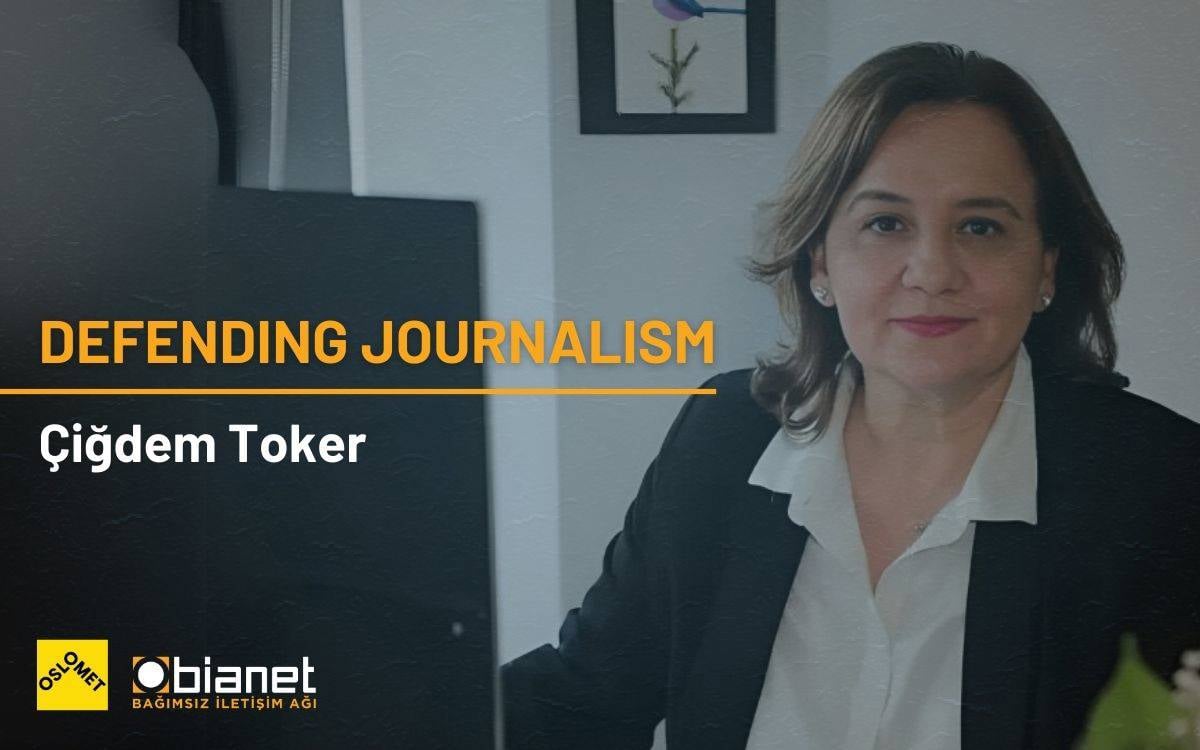Auto-generated English subtitles are available for the video.
The year I started journalism, news stories were typed on typewriters, and agencies operated through printed telex sheets. Fax machines were still a year away from arriving in offices. It would be another decade before we encountered the internet, which would forever alter our perception of time and space.
The idea that news, photos, video footage, and the transportation tools needed to deliver them could all fit into a small device in our pockets seemed unimaginable. The notion that hours-long processes of capturing, editing, and transmitting content could happen in mere seconds would have been dismissed as fantasy.
But all of this became reality while we were out in the field reporting. However, this technological transformation, which made reporting physically easier and disseminated news at the speed of light, did not bring a similar improvement to press freedom or freedom of expression. The constraints I encountered as a young journalist—like emergency rule governors confiscating newspapers and magazines or the Law on Protecting Children from Obscene Publications—have persisted, now rebranded with methods and tools suited to the current era. If asked to pinpoint the defining difference between today and the 1990s, the most appropriate answer would be: "We are killed less often."
Intimidation and deterrence
My first lawsuit came while I was working as an economics reporter at Hürriyet's Ankara bureau. A general manager of a public bank, whose audit report I had covered, filed a lawsuit demanding an astronomical amount in damages. These were years of wild inflation fluctuations, so I can’t recall the exact amount. But much like the lawsuits filed two decades later by the Bayburt Group companies, it was a figure I could never repay, no matter how many years I worked.
Later, I learned that the newspaper's owner and the bank’s management had reached a settlement behind the scenes. Over time, I came to understand that for companies and institutions, the primary motive in such lawsuits wasn’t a belief that damages were deserved but rather an effort to intimidate and deter journalists.
A 500,000-euro lawsuit
The era when lawsuits and demands for content takedowns began to rain down coincided with my tenure at Cumhuriyet newspaper. During this period, two lawsuits stood out among many: both were filed by Bayburt Group companies, each demanding 1.5 million liras in damages. (Earlier, I had already begun facing lawsuits initiated by then-İstanbul Metropolitan Mayor Kadir Topbaş, as well as a separate 1 million lira lawsuit from Ömer Faruk Kavurmacı, related to a previous case.)
In 2015, following the downing of a Russian fighter jet near the Syrian border, the first signs of thawing relations between the two countries came in the form of trade. Around this time, Agrobay Seracılık, a subsidiary of Bayburt Group and a frequent winner of public infrastructure tenders under Article 21/b, was selected as one of the companies exporting goods to Russia. My column, "Tomatoes to Russia, Courtesy of Bayburt," raised questions about this development and was met with a 1.5 million lira lawsuit.
Next came another piece, "If You’re Looking for Savings, Check Metro Tenders," criticizing the awarding of metro construction projects in foreign currencies through the same tendering method while citizens were urged to cut expenses. For this, Bayburt Group’s Şenbay Madencilik demanded another 1.5 million liras in damages. The fact that this amount, devoid of any offensive content, was labeled as "moral damages" was curious.
At the 2017 exchange rate, this sum equated to approximately €500,000, drawing the attention of international media. The first lawsuit was dismissed, and the second was declared null and void. One memorable detail came from the judge who dismissed the case, who reportedly asked journalist colleagues covering the trial, "Could you write about our workload and challenges, too?" This request became one of the notable anecdotes of the trial.
Content takedowns
During a period when I reported extensively on abuses of Turkey’s Public Procurement Law (Article 21/b), meant for extraordinary and emergency circumstances, I exposed significant tenders awarded without public announcements and misuse of public funds through favoritism. Many of my articles were subsequently subjected to content removal orders by various criminal judgeships of peace:
- "The Company in Etiler Turns Out to Be Pro-AKP" (Cumhuriyet, Feb 15, 2014)
- "Who Benefits from Private Violence?" (Cumhuriyet, Dec 24, 2014)
- "Who Rewarded Private Security?" (Cumhuriyet, Apr 4, 2015)
- "The Double Standards of Private Security" (Cumhuriyet, Sep 28, 2015)
- "Sadat Inc." (Cumhuriyet, Jul 11, 2016)
- "Why Was the Ferhat Tepe Case Closed?" (Cumhuriyet, Jul 16, 2016)
- "Who Protects Rota Catering?" (Cumhuriyet, Jun 18, 2017)
- "Forget 'U,' Focus on the Second Runway" (Sözcü, Sep 10, 2021)
- "A Tram Line in Kocaeli" (Sözcü, Apr 2, 2021)
- "An Unlawful Tram Line" (Sözcü, Apr 17, 2021)
- "They Secretly Doubled the Tender Amount" (Sözcü, Jun 6, 2022)
In these takedown orders, one construction company, Met-Gün, stood out for its "speed and efficiency" in achieving results. Met-Gün could quickly secure content removal orders not only for articles directly about itself but also for reports referencing those articles on multiple news websites.
T3 Foundation lawsuit
In early 2019, I published an article titled "Services Provided by İstanbul Municipality to Foundations," documenting the financial support the İstanbul Metropolitan Municipality extended to pro-government foundations, associations, and NGOs based on protocols. This report, more akin to an internal document, was verified through significant effort before publication.
Among the listed organizations was the T3 Foundation, which filed a lawsuit demanding 80,000 liras in damages. While 30,000 liras were awarded and upheld on appeal, it’s worth noting that the lawsuit alleged I had claimed the foundation received cash donations—a statement not present in my article.
1-lira lawsuit
Alongside astronomical compensation claims, there was also a trend of filing "symbolic" 1 lira lawsuits. One such case involved Kalyon Construction, which sued me for reporting official investment incentive certificate data published in the Official Gazette. The lawsuit was dismissed.
Election night investigation
After stating on election night, "Democracy is not just about the ballot box," an investigation was launched against me, and I was called to give a statement. The case was eventually dropped, but the TV channel that aired my remarks was fined heavily. The head of RTÜK (Turkey's media regulator) tweeted my name, signaling a campaign.
Later, someone I prefer not to name made a despicable attack involving my late father, who passed away due to medical negligence. On his TV show, he falsely accused me of being the grandchild of someone he labeled a coup plotter. Even after learning the truth, he neither apologized nor retracted his words. Instead, his comments led to days of online abuse directed at me.
Challenges for journalists
What I’ve shared so far provides a glimpse into the climate in which I’ve worked as a journalist for nearly four decades. Many corporations now seek to shield themselves entirely from scrutiny. They deeply resent having their mistakes exposed or reported. Efforts to curtail press freedom—often referred to as judicial harassment—appear particularly accessible for companies aligned with the government.
Even though Turkey's Constitutional Court issued a significant ruling on rights violations in content removal cases, the practice of takedowns continues unabated, as if the decision never happened.
Support and solidarity
It’s crucial for media organizations to stand firmly behind their employees facing judicial harassment. As someone who has benefited from the support of professional organizations, I know how vital their backing is and believe this solidarity must continue.
At a time when judicial harassment from both government bodies and corporations is increasing, professional efforts to empower journalists in every possible way must also intensify.

Defending Journalism
(ÇT/VK)





